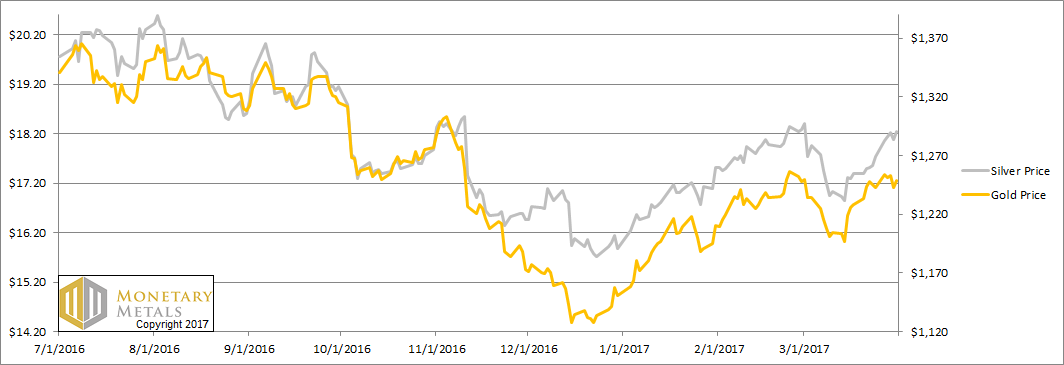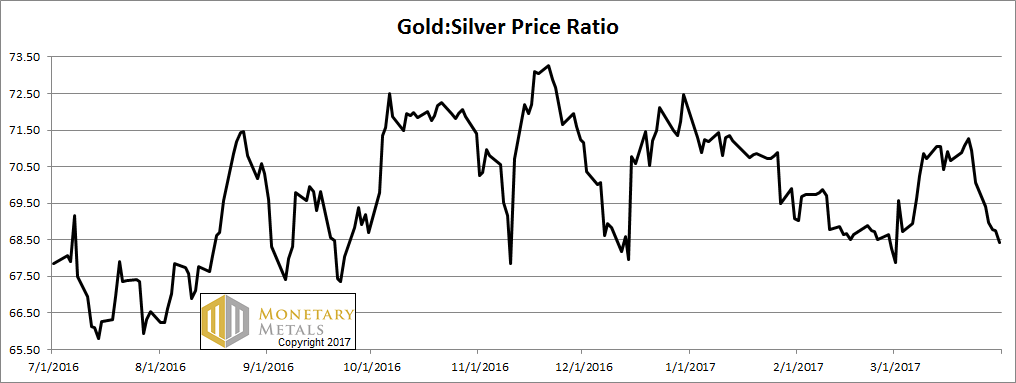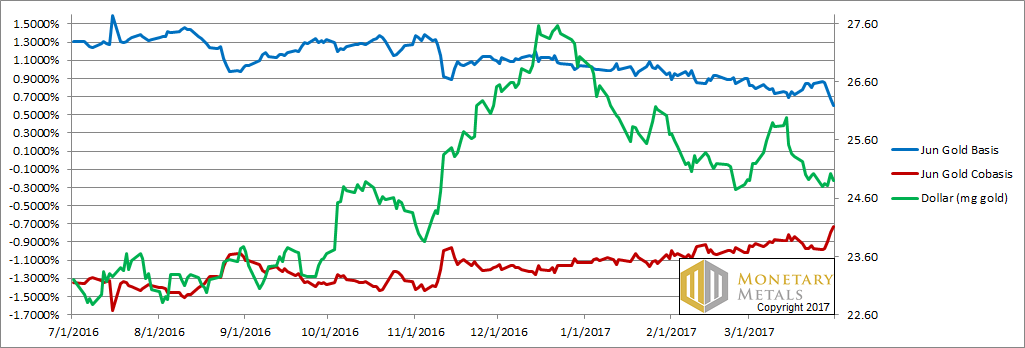Last week, we discussed the growing stress in the credit markets. We noted this is a reason to buy gold, and likely the reason why gold buying has ticked up since just before Christmas.
Many people live in countries where another paper scrip is declared to be money—to picture the absurdity, just imagine a king declaring that the tide must roll back and not get his feet wet when his throne is placed on the beach—not real money like the U.S. dollar. It should be obvious, but we have seen much disinformation out there promoting the idea that the dollar is collapsing. Most of the time, most of these people buy dollars as the escape hatch from their native currencies.
They buy the dollar first, and gold (for now) is a distant second.
That leads to the question of silver. Do they buy silver in equal measure as gold, or is silver a distant second to gold, as gold is a distant second to the dollar?
Theory tells us that gold is more portable. It is much, much more portable. First, the same weight of gold is about half the volume of silver. A 1oz gold Maple Leaf coin (which is pure gold) is much smaller than a 1oz silver Maple. And right now, the value of an ounce of gold is just about 70 times greater than the value of an ounce of silver. The math works out that the same value of silver is 126X more bulky than gold.
If you are paying for storage, that may be important. It sure is, if you are thinking you may need to carry it on your person. A gold bar worth $120,000 would fit in your trouser pocket (a bit heavy at 3kg, but you could do it). That much silver would be almost 7 of those big bars which are the size of small loaves of bread. Each. All that silver would weigh about as much as two heavyweight boxers.
Gold is also more liquid.
What does the data tell us about demand for silver relative to gold right now?
We will look at that below in the only true picture of supply and demand in the gold and silver markets. But first, the price and ratio charts.
The Prices of Gold and Silver
Next, this is a graph of the gold price measured in silver, otherwise known as the gold to silver ratio. It moved down this week. Is it approaching a line of support?
The Ratio of the Gold Price to the Silver Price
For each metal, we will look at a graph of the basis and cobasis overlaid with the price of the dollar in terms of the respective metal. It will make it easier to provide brief commentary. The dollar will be represented in green, the basis in blue and cobasis in red.
Here is the gold graph.
The Gold Basis and Cobasis and the Dollar Price

The price of the dollar fell a bit more (this is the inverse of the rising price of gold, measured in dollars, +$14). But look at that move in the cobasis (i.e. the red line, our measure of scarcity). What does it mean when the price of gold rises, but the metal becomes more scarce?
We have been saying for a few weeks that fundamental buying, when people take real metal home, presumably not to bring it back to the market for the foreseeable future, is “sputtering”. Last week, gold buying this week was biased towards speculation on futures. This week, the bias is back to physical metal.
Our calculated fundamental price of gold is up over $30. It’s just a hair under $200 over the market price. Gold is being offered at a quite a discount.
Now let’s look at silver.
The Silver Basis and Cobasis and the Dollar Price
Uh oh. We can see immediately, that the cobasis has fallen in silver about 2/3 as much as it rose in gold. Granted, the price of silver rose 2.9% whereas that of gold went up only 0.5%. The speculators were much more aggressive in the silver market, as they often are.
Our calculated silver fundamental price is up about 40 cents, whereas the market price was up 51 cents. The silver fundamental price is now about $0.80 over the market.
Getting back to our question at the top, we can see in the data that people buy first gold when they fear credit stress and default. Speculators can temporarily move the price quite a lot, as they attempt to front-run the market. So, naturally, they are focusing on the silver market as the general rule when gold goes up, silver goes up more. That may be true when central banks’ stimulus efforts are successful in causing an increase in production of goods, including goods that contain silver.
Less so, when metal buyers are not buying to consume but to opt out of the banking system.
There are people who buy silver metal in preference to gold, for example those who cannot afford to buy gold. But at this stage, the balance favors gold.
We calculate a fundamental gold-silver ratio of about 75.8.
